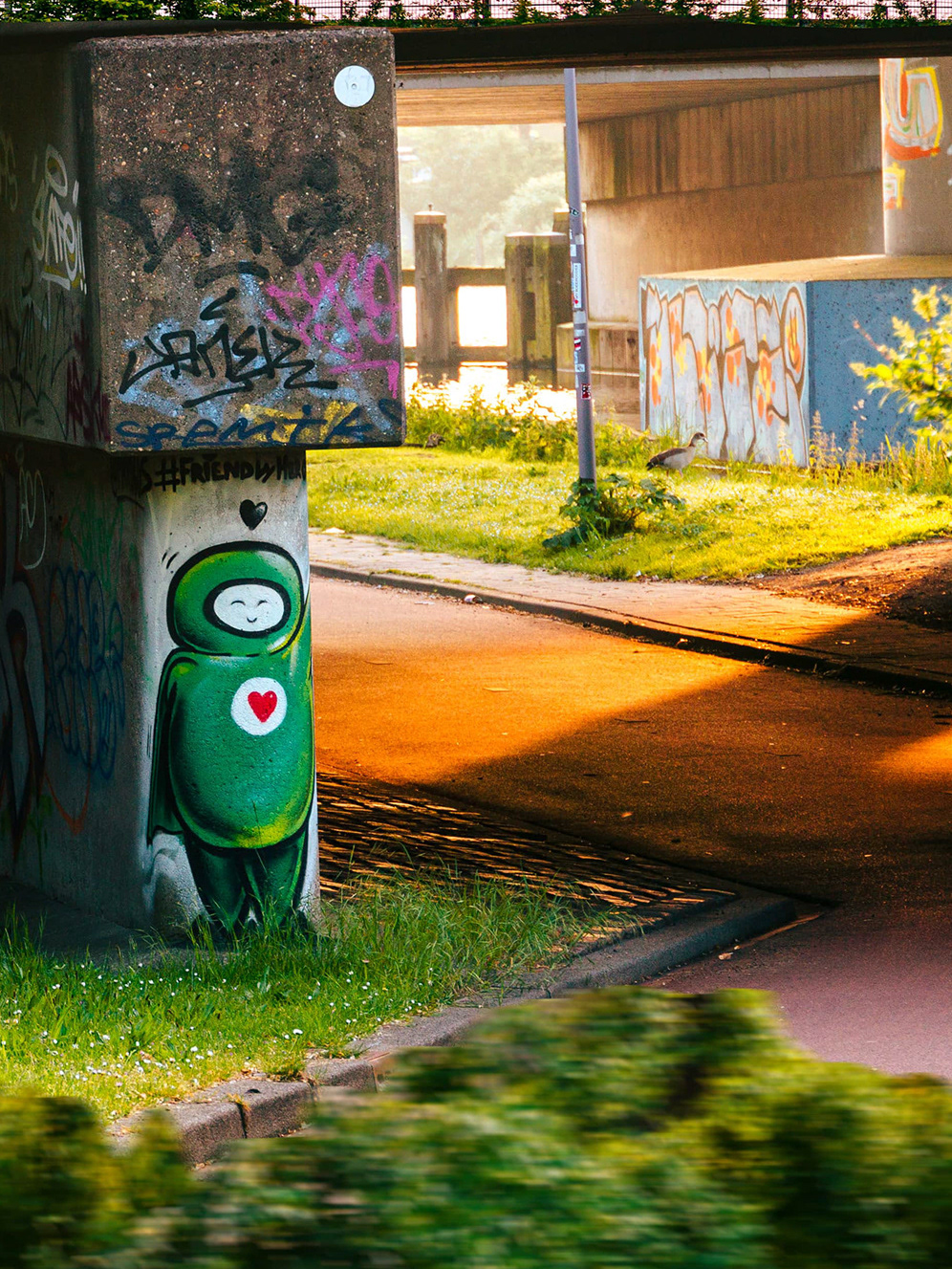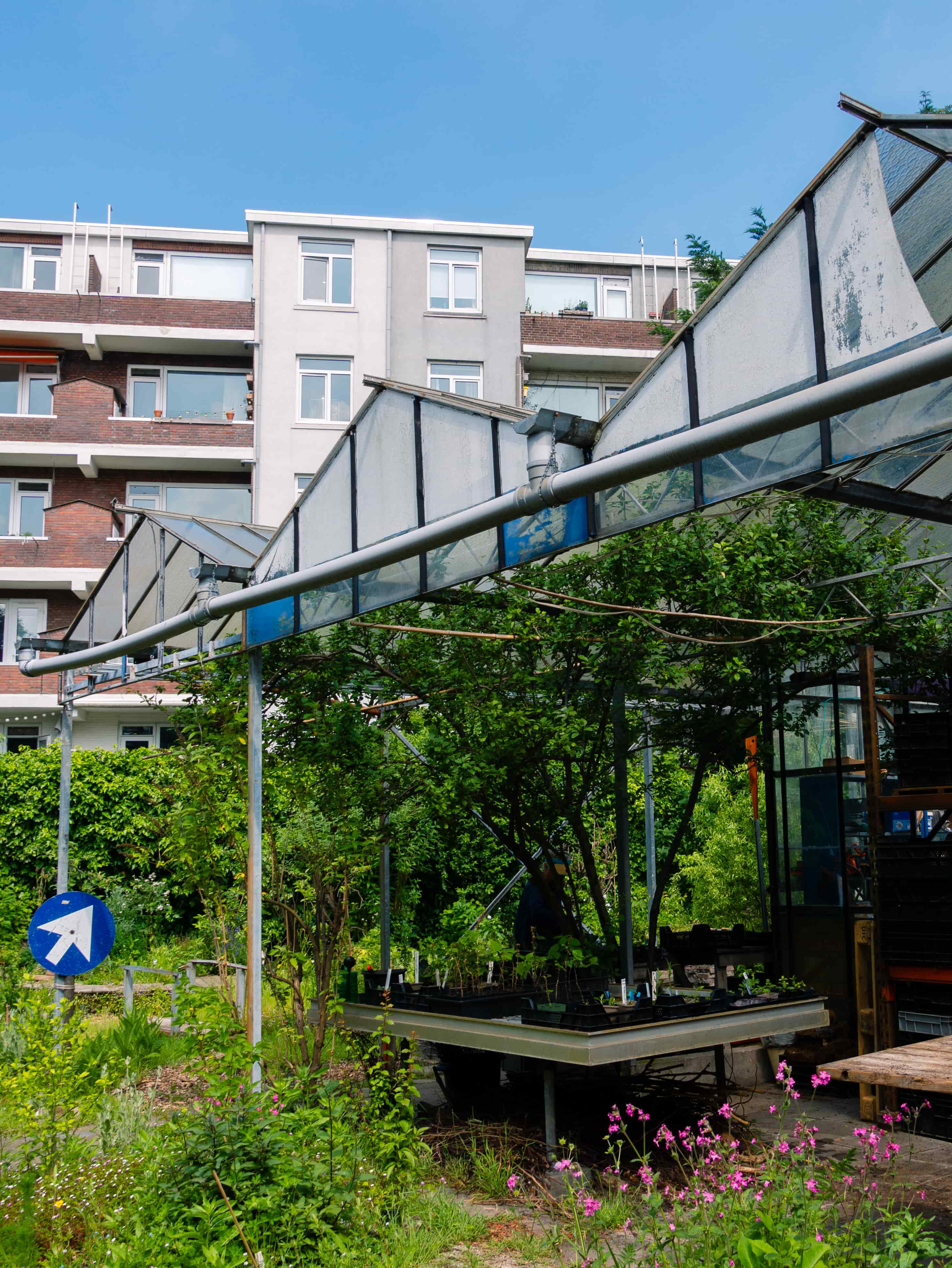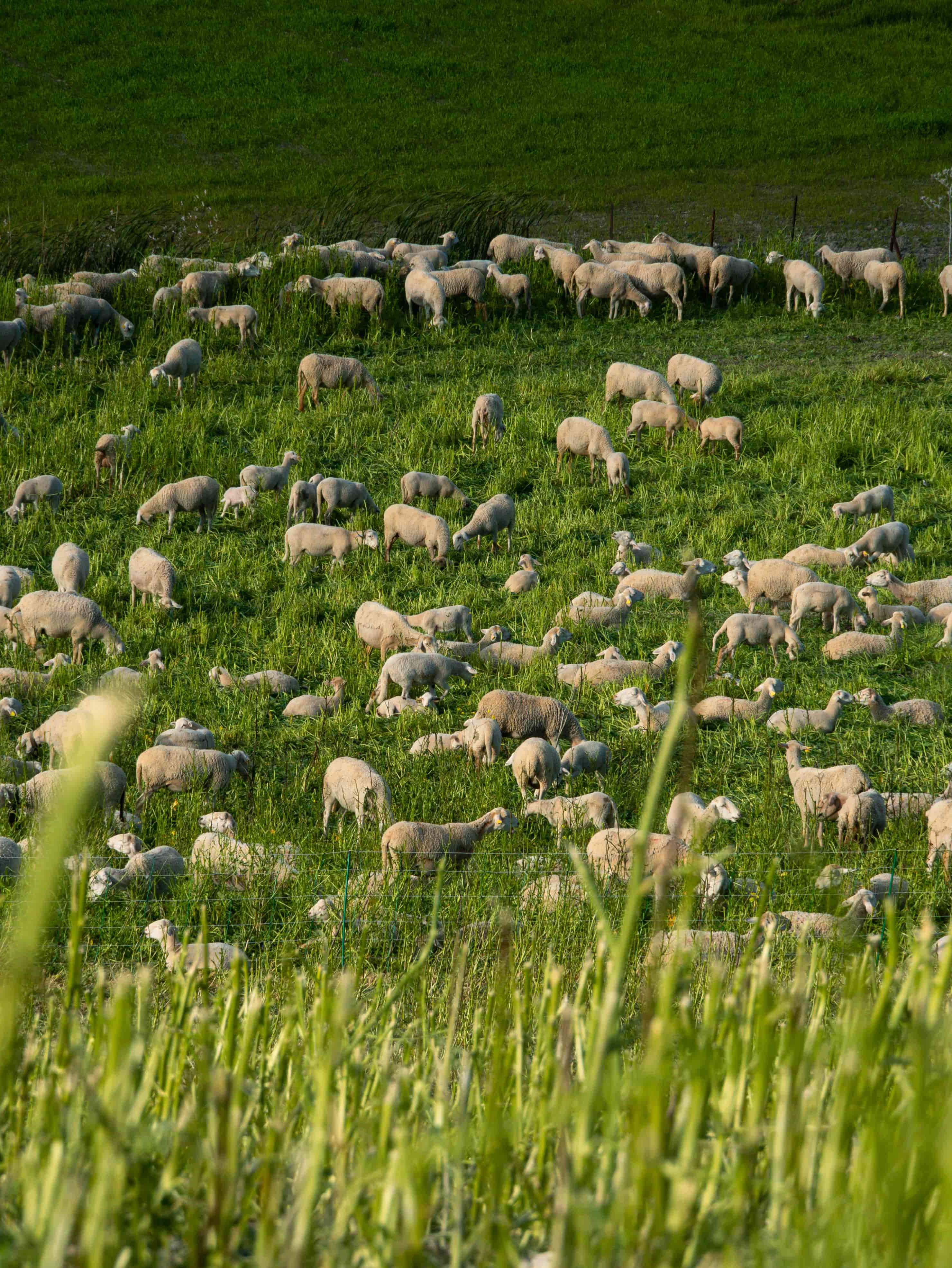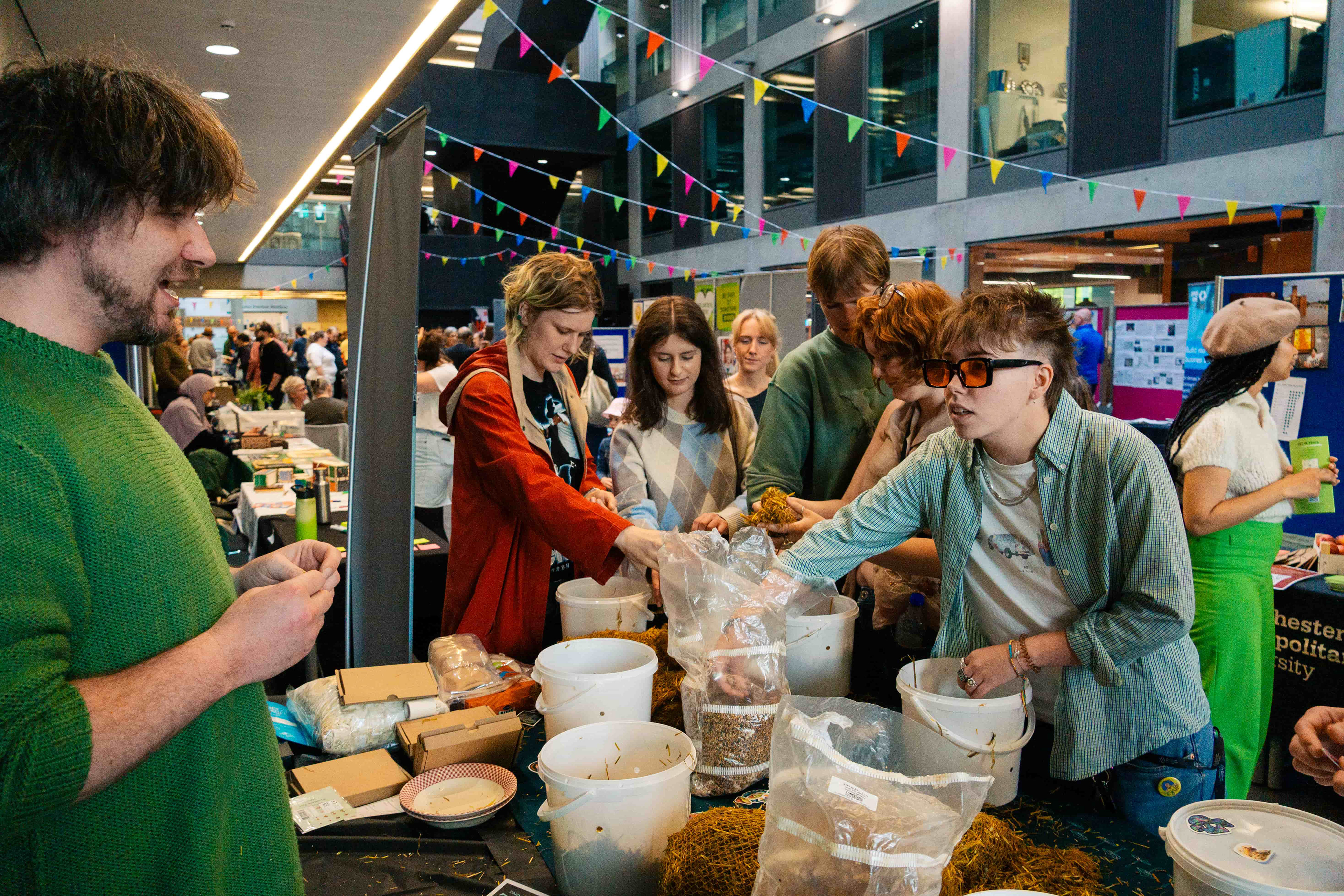
Eating away at corporate coffee waste, mycelium is FungALL’s ally in creating healthy mushroom-based meals for communities experiencing food insecurity. Based in Manchester, FungALL is a community interest company creating its impact through an interconnected chain. It starts with waste: coffee grounds and other substrates are fed to mycelium, which grows oyster mushrooms. The process is spread across a lab and two sites that transform previously unused areas within already vibrant community spaces. By partnering with probation services, which bring in people to help grow and cook, FungALL supports individuals in developing hospitality and green sector skills. The food grown is then distributed for free to areas with food insecurity, such as food fridges at local schools.
But it does not stop there. FungALL also hosts mushroom-growing workshops, which are an incredibly engaging way to involve people of all ages, especially young people, in food systems and hands-on interaction with nature. With just hydrated straw, a bucket, mycelium, and a bit of micropore tape, FungALL has created a way for people to feel involved. At a recent sustainability fair at Manchester Metropolitan University, 45 buckets were cleared out in a matter of hours. Not only did people walk away with a small mushroom farm, they walked away with knowledge.
One young boy who was adamant about not liking mushrooms even mustered the courage to try some of the sweet, ketchup-like mushroom salsa that was out to sample, and he was sold. When asked what he learned at the fair, he said the biggest organism in the world was a mushroom that was 3.5 square miles in size (a fun fact courtesy of FungALL).
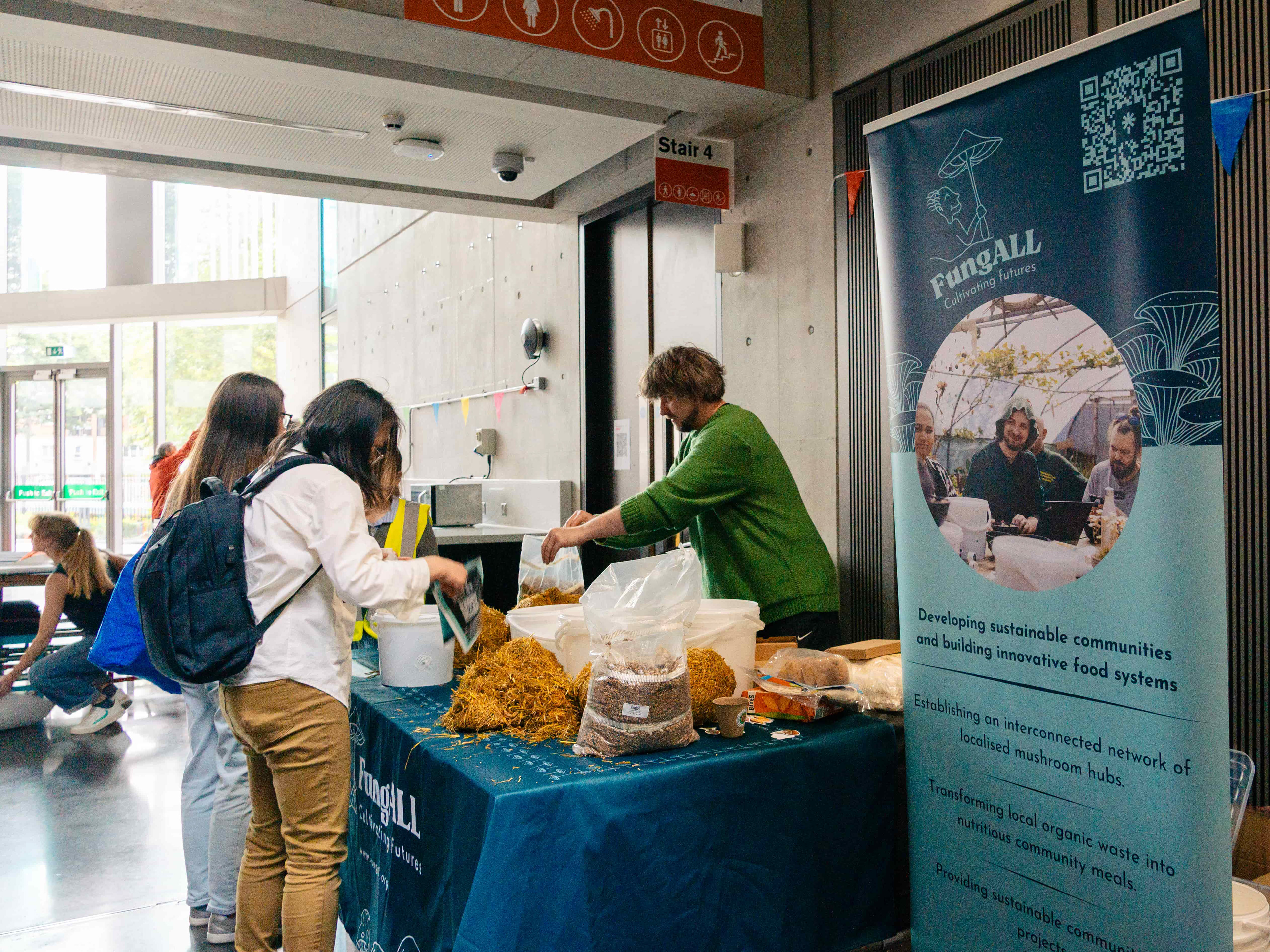
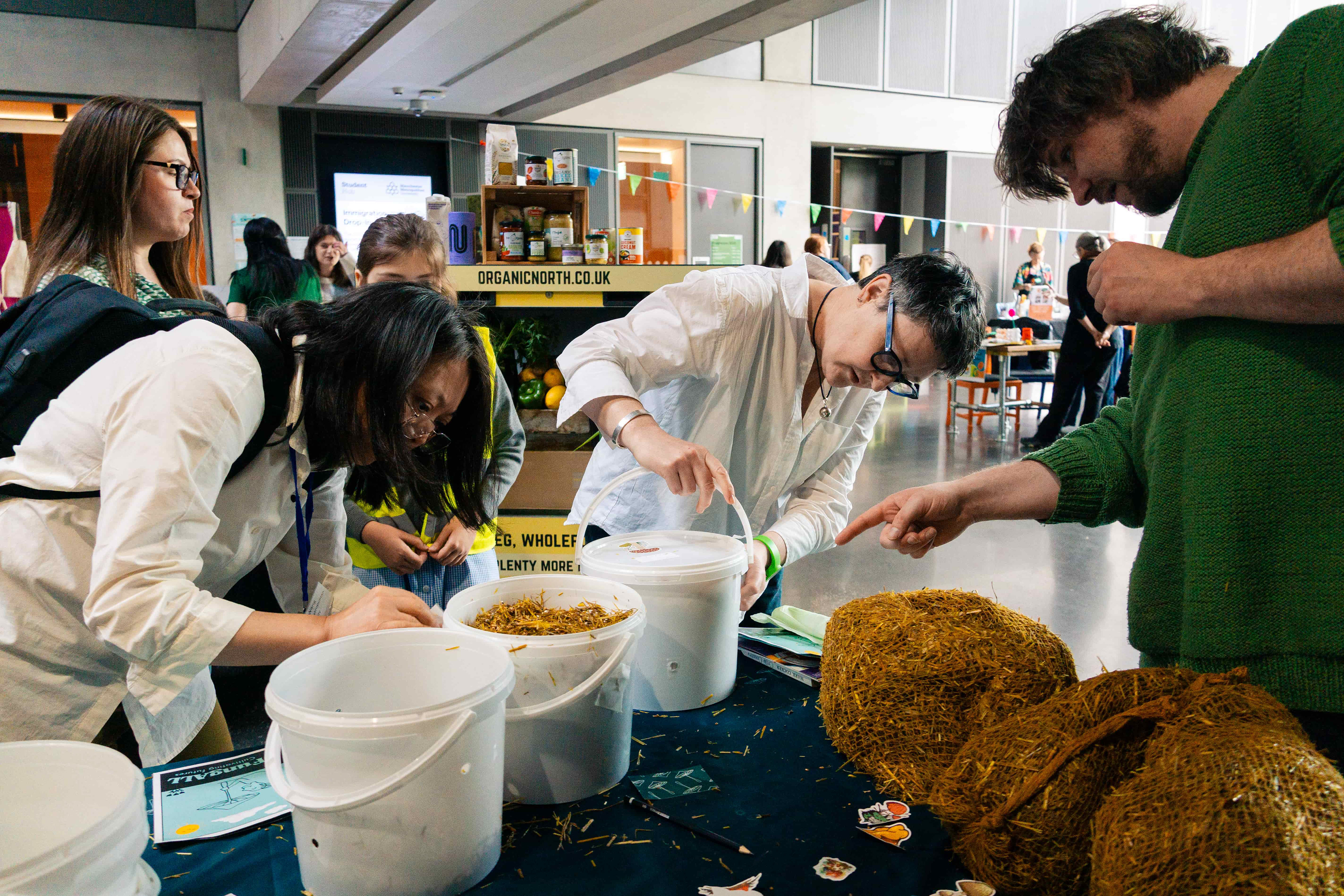
None of this would exist without Norton Robinson and his team, who co-created FungALL in 2023 while at university. Norton is a warm and passionate source of mushroom knowledge, always ready to share a fun fact or walk you through the technical side. The lab under the Carlton Club, another community interest company and gem of Manchester, is where the sterilisation and substrate preparation happen. It is also where I had the chance to learn the process myself.
FungALL thrives because of partnerships. The farm sites, the Carlton Club lab, and the support and funding of organisations like the Co-op Foundation, Groundwork, and In Our Nature all come together to enable Norton and his team to pursue their mission. My takeaway is that if the city wants to grow its green and community-driven future, these support structures must be scaled up.
FungALL is also becoming more self-sufficient by charging corporate partners to collect their coffee waste, as well as offering a way to sponsor workshops and mushroom grow kits that are given out for free. Whether it is ticked off as a corporate social responsibility checkbox or comes from a genuine commitment, it is the kind of mutually beneficial partnership more companies should lean into.
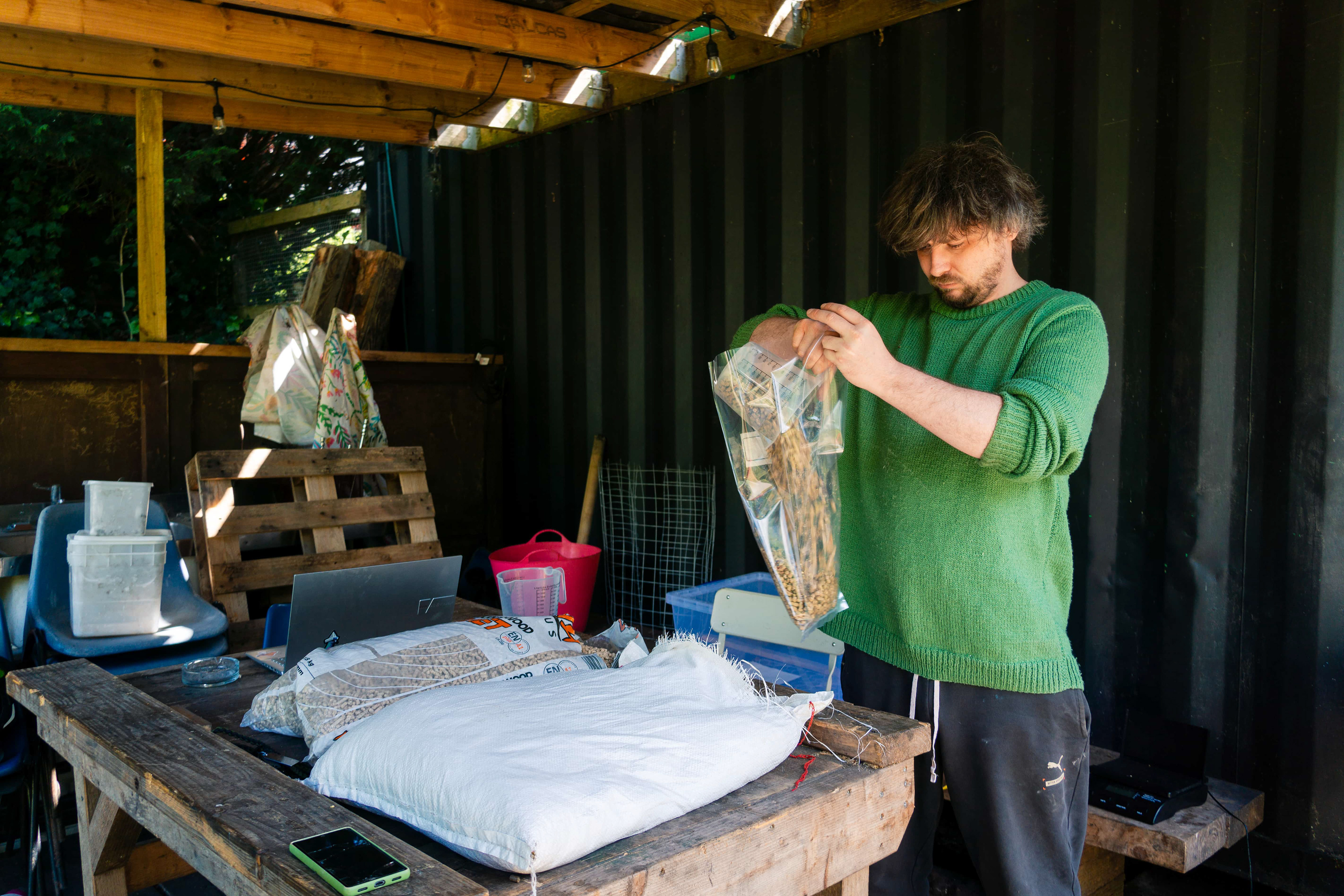
The best thing for FungALL right now is to increase its awareness. Norton is juggling a lot, so increased funding is crucial to expanding FungALL's capacity, team, and momentum. The more people and partners involved, the more rooted FungALL becomes, and the more Manchester communities benefit from it.
To learn more about FungALL: https://www.fungall.org/about
To learn more about FungALL: https://www.fungall.org/about
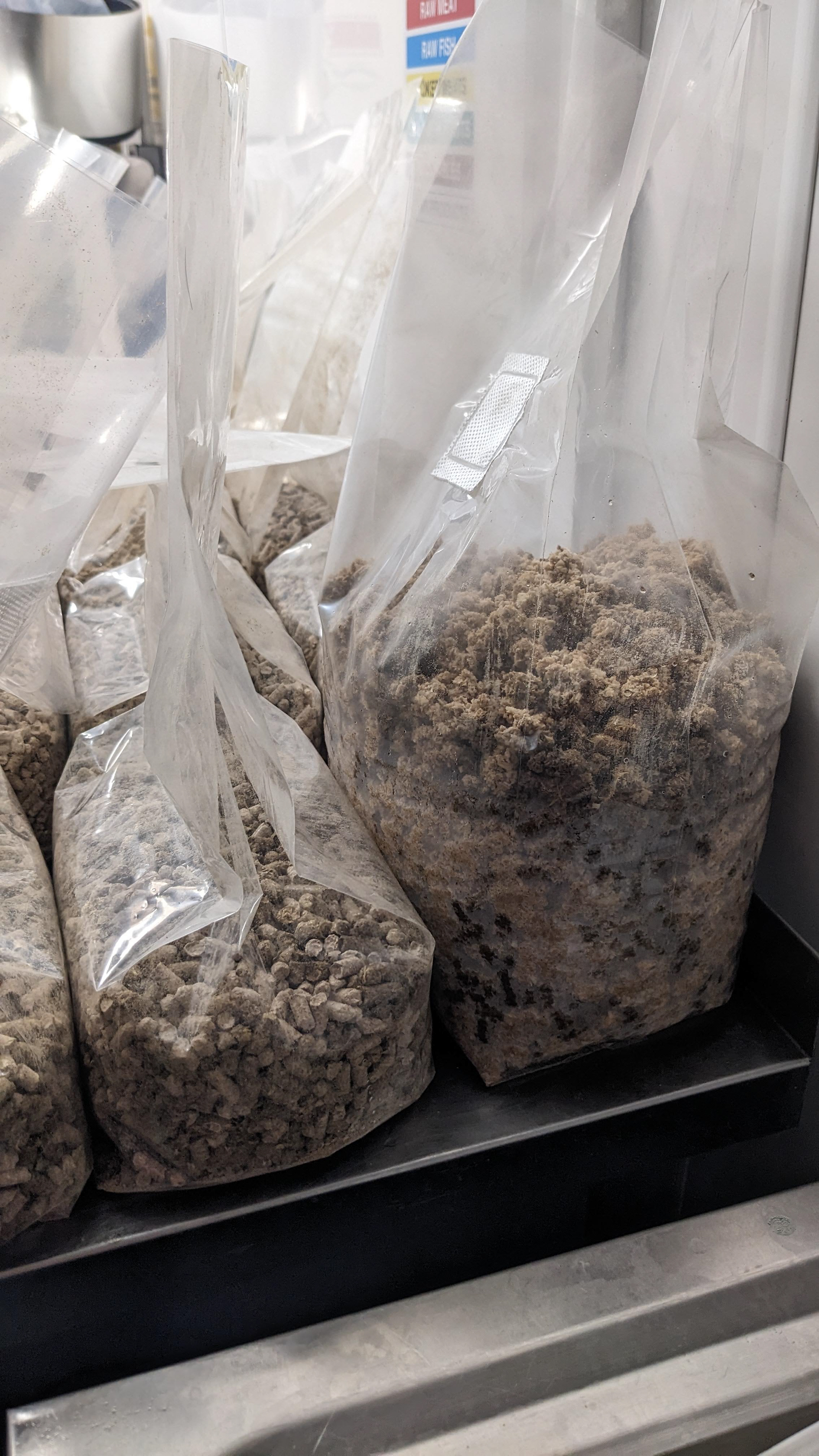
Hydrating oak and straw substrate
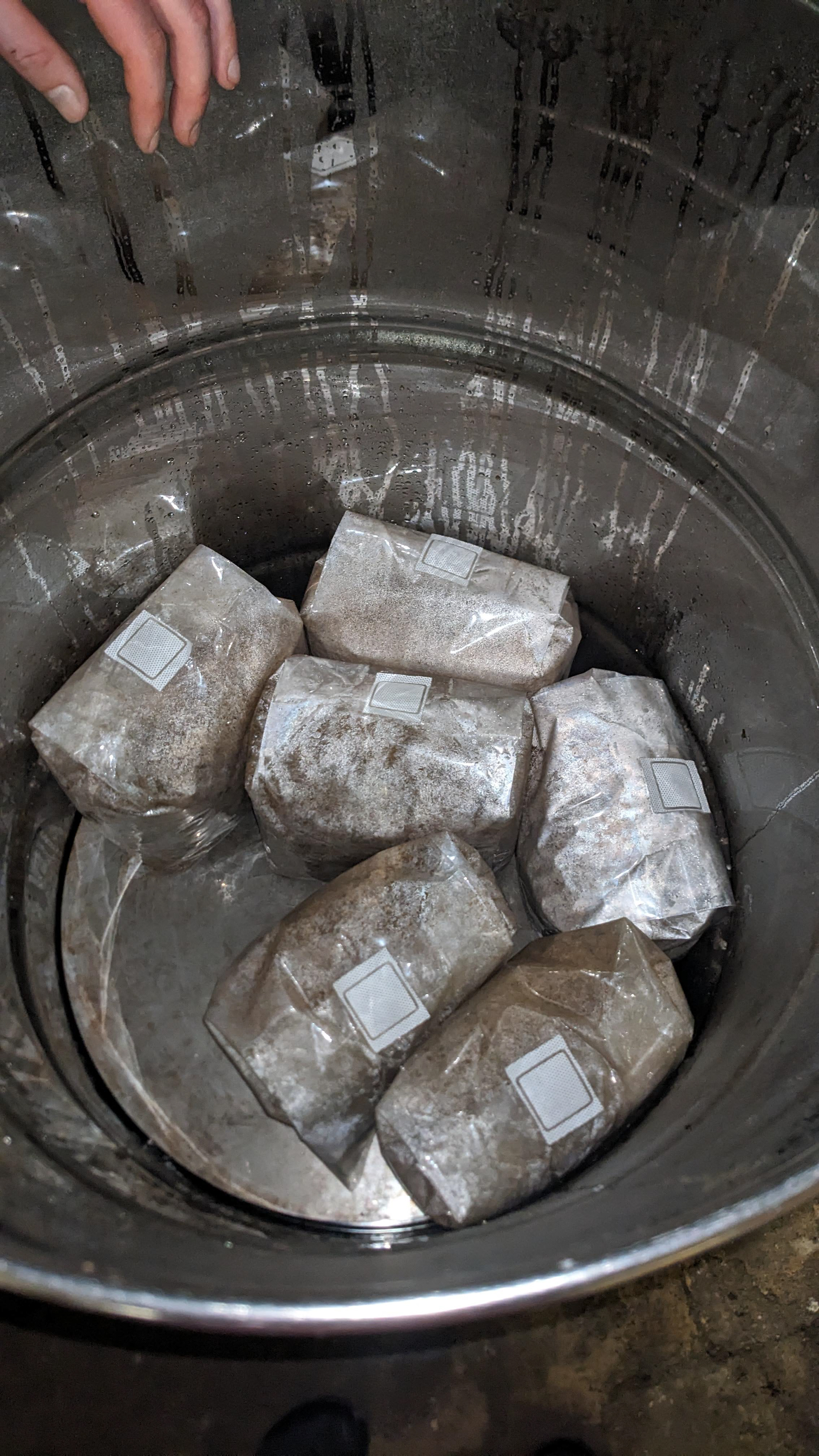
Oak and straw substrate bags in the pasteurizer
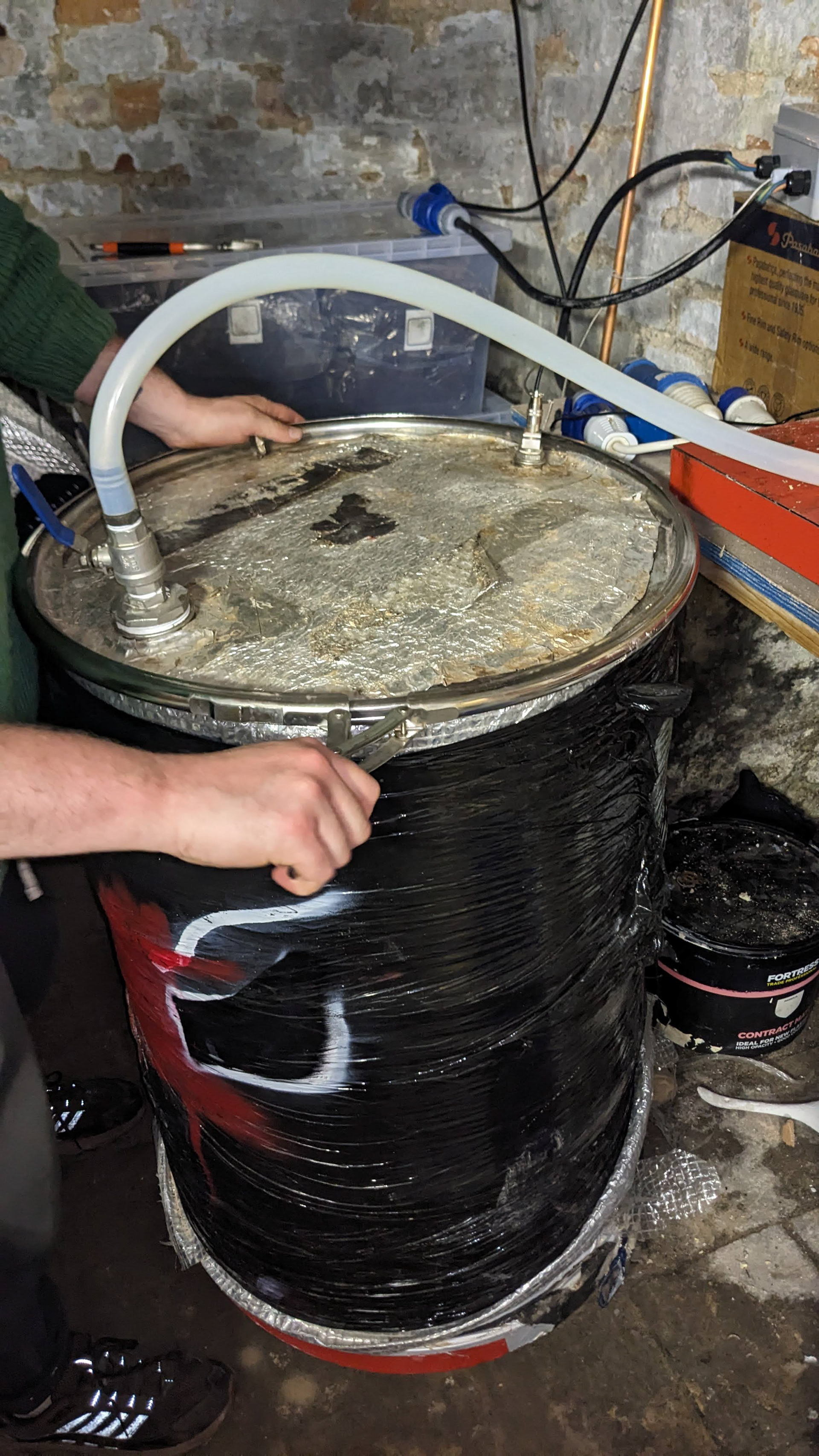
Steel drum pasteurizer
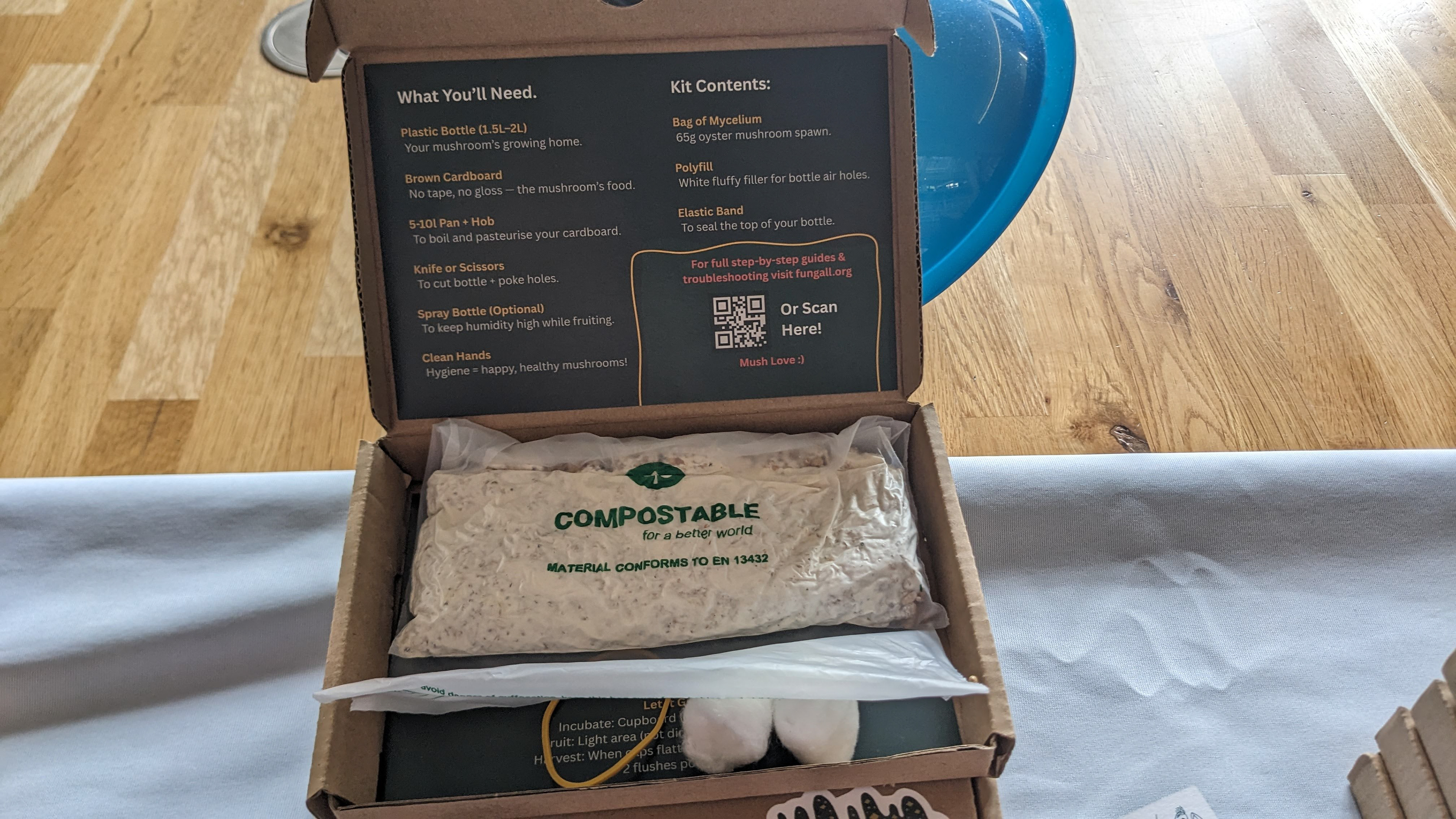
FungALL mushroom grow kit
This piece for Project GreenSpace emerged from volunteering with Norton at two events and learning the growing process first-hand at the lab.
Project GreenScape is a visual and written series by Jeremy Evans exploring grassroots solutions to social, ecological, and economic challenges through digital art and photography.
